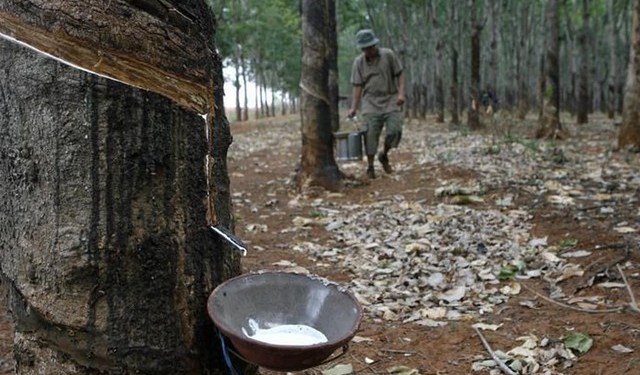Rubber output in Indonesia, the largest grower after Thailand, may decline for the first time in four years in 2013 as the country limits output and shipments in coordination with other producers to support a rally.
Production may decline 8.9 percent to 2.77 million metric tons from an estimated 3.04 million tons this year, according to Agriculture Minister Suswono. That would be the first fall since 2009, when output dropped 11 percent to 2.44 million tons, data from Indonesia’s Directorate General of Estate Crops show.
Thailand, Indonesia and Malaysia, representing 67 percent of global natural supply, agreed in August to combat lower prices by limiting shipments and cutting down trees, paring 450,000 tons. Yen-denominated futures in Tokyo, the regional benchmark, rallied to the highest close since May today as the Japanese currency fell, lifting costs for tiremakers.
“We have a commitment with two other producers to control output and exports,” Suswono, who uses a single name, told reporters in Jakarta today. “We’re not too ambitious to increase production because we have to maintain prices.”
Rubber for delivery in June climbed 1.3 percent to 296 yen a kilogram ($3,470 a metric ton) on the Tokyo Commodity Exchange, the highest settlement since May 8. That extended this year’s gain to 12 percent.
Indonesia’s Agriculture Ministry plans to replant 10,685 hectares (26,403 acres) in 2013 and will ask farmers to continue to cut tapping, said Mukti Sardjono, secretary at the directorate general. Provincial governments in Riau, Jambi and South Sumatra have similar programs, he said.
Source: Bloomberg




























